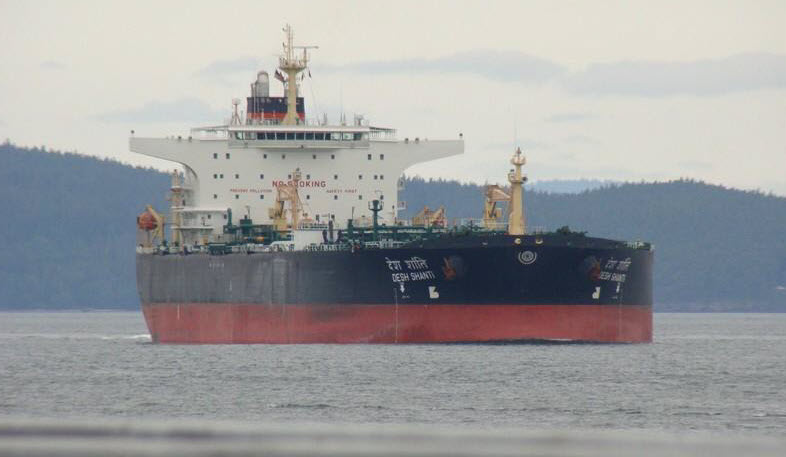
September 13-2013
The Iranian government has freed the Indian tanker Desh Shanti and allowed it to sail home—but it isn’t clear if India paid anything to Iran to win freedom for the hostage tanker.
Iranian officials last week implied that Iran would have to pay for the environmental damage the tanker was alleged to have done in the Persian Gulf before the tanker would be freed.
The Islamic Republic News Agency (IRNA) claimed outright that India had paid a fine to free the tanker. But the Indian Shipping Ministry told the Press Trust of India it had paid nothing.
The Hindu, a major Indian daily, reported last Thursday that Iran agreed to free the tanker “after India said it will pay up to $1 million if it is found that the crude oil tanker polluted the Persian Gulf.”
Who would make that determination was not stated. Earlier, The Indian Express reported that India’s ambassador to Iran had suggested to India’s Foreign Ministry that a third country be picked to arbitrate the dispute in order to prevent frictions between Iran and India in bilateral talks. No more has been said about that.
A further complication is that the tanker’s European insurance company cannot make any payments to Iran under EU sanctions.
India still insists that the Desh Shanti was nowhere near the oil slick that Iran blames on the tanker. India has further insisted that under international law the tanker could not be seized by Iran even if it had caused the oil slick.
The ship was detained by Iran for 25 days—including two days after Iran had publicly said the ship was free to sail but during which the captain radioed home he was not allowed by the Pasdaran to leave Bandar Abbas.
Meanwhile, 19 Indian fishermen remain imprisoned in Iran. They were arrested last December and accused of sailing in Iranian territorial waters. They were sentenced to six months in jail, but have not been allowed to leave even though their jail terms have expired. Their case has aroused much concern in their home state of Tamil Nadu. But the tanker case drew much more national concern across India.